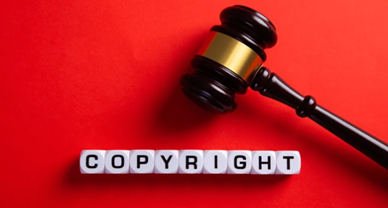Do You Need A Science Degree To Be An IP Attorney?
India has been a witness to an enormous surge in the filing of applications for intellectual property rights and the subsequent approvals of those applications in the last five years. If we were to go by the statistics provided by the Department of Industrial Policy and Promotion (DIPP), trademarks, copyrights, and patent registrations have seen the growth of 236%, 233%, and 41% respectively since 2016.
The Annual Report issued by the Office of the Controller General of Patents, Designs and Trademarks (CGPDTM) for the financial year 2017-18 (data available till 31st Dec 2017) illustrates applications for 8,521 designs, 35,511 patents, 18,584 copyrights, 1,95,705 trademarks and were filed with the patent office out of which 7,406 designs,8,940 patents,15,017 copyrights and 2,18,383 trademarks (includes previous year’s pending applications) were granted registration.
The data provided above clearly exhibits that the Intellectual Property (IP) Law is an exponentially growing field in our country and around the globe. We are witnessing a fundamental change from corporations and companies hunting down tangible properties such as land and machinery towards acquiring intellectual assets. India is becoming a hub of startups and R&Dcentres, which is all about intellectual creations. Intellectual Property law is nothing but protecting and exercising benefits from your intellectual creations. People protect what they create. It is a simple human phenomenon for which they require another set of people. But because there are two sides to everything in this world, you can be sure that there will be people who will try to infringe the other person’s registered IP and there will be many people who will try to hurt other person’s goodwill by passing off other person’s products like theirs. And that is when an IP Attorney comes into the picture. That is when you come into the picture.
You have already spent 3 years of your life getting an LL.B. degree or 5 years in getting your B.A. LL.B./ B.Com LL.B./ B.Sc. LL.B degree depending upon the course you opted for in your law school and now you thinking of pursuing intellectual property law as your specialization because otherwise why would Google direct you to this blog, right? Having said that you are also unsure because you don’t know whether this career requires a science background or not. But hey, that is what we are here for. So, let’s now address the elephant in the room once and for all i.e. whether you require a technical degree on top of a law degree to excel in IP Laws? It’s a no-brainer that the market is slightly better for attorneys with a technical degree but the same is the case with people who have previously worked with an advertising company or a music industry. The consensus that this controversial clause of the Patents Act necessarily has a technical degree is that you just need to have a scientific passion to thrive on the knowledge and understanding of the client’s business and technological space in which they operate.
To understand this in a better manner let us first try and understand what IPR is? Simply put, intellectual property refers to the creation of the human mind. There can be various kinds of intellectual property, for instance, copyright, trademark, trade secrets, patent, industrial designs, and geographical indication. Typically, you can categorize these IPs in two classes: hard IP and soft IP. Only patent, Layout Designs of Integrated Circuits, and Plant Varieties fall under Hard IP and the rest of it falls under the soft IP.
Before we dive into what all options are open to you, let us quickly take a glance at what all is there that you cannot opt for without a technical background by your side. Hard IP is something that requires at least a little amount of knowledge and understanding of science. Although, if you are interested in patents, then it’s a given that you enjoy reading things related to it and even though you might not have a piece of paper (read: degree) your interest in it, what is more, important is that you at least have a love for science which is sufficient for you to land you a job even in a tier two firm. However, you cannot sit for patent agents examination (PAE), since a science or technological degree is required to appear in the examination, which can prove to be a barrier for big law firms from hiring you because they want someone who can work across copyright, trademarks, and patents.
Just because you don’t have a hard-science background, though, does not mean you can not litigate patent issues, draft licensing and technology transfer agreements which, at the end of the day, are just contracts about a specific technology, and work on patent policy.
Coming back to the soft IP… you do not need a science or technology-related degree for a trademark, copyright, and design. Law students who want to do IP without a science background typically don’t want to do patents, anyway. So, let us have a look at the different possible roles that people in this field play:
- Litigation
- Filing & Prosecution
- Drafting
- Analytics and Strategy
- Technology assessment and marketing
- Research, policy, philosophy, and advocacy
- Teaching, training, and spreading awareness
The list is by no means exhaustive. The idea is to make clear that a single individual can take up more than one of these roles in the Indian pattern because role specialization is rare here, unlike the western countries. These roles might narrow down a little bit if you end up in an IPR specializing firm, where only specific roles are provided, but if you step into litigation, you have a dynamic and broad field of practice, which according to us would be more fun job.
So, there’s no doubt that patent law or a hard-science background would have been useful, but you can surely survive without. While having a hard-sciences background is beneficial, it is most definitely not mandatory.
Author: Parul Malik, student of Lloyd Law College, Greater Noida, an intern at Khurana & Khurana, Advocates and IP Attorneys. In case of any queries please contact/write back to us at support@ipandlegalfilings.com

